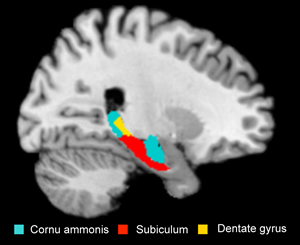Patients who use anti-depressants are much more likely to suffer relapses of major depression than those who use no medication at all, concludes a McMaster researcher.
In a paper that is likely to ignite new controversy in the hotly debated field of depression and medication, evolutionary psychologist Paul Andrews concludes that patients who have used anti-depressant medications can be nearly twice as susceptible to future episodes of major depression.
Andrews, an assistant professor in the Department of Psychology, Neuroscience & Behaviour, is the lead author of a new paper in the Journal Frontiers of Psychology.
The meta-analysis suggests that people who have not been taking any medication are at a 25 per cent risk of relapse, compared to 42 per cent or higher for those who have taken and gone off an anti-depressant.
Andrews and his colleagues studied dozens of previously published studies to compare outcomes for patients who used anti-depressants compared to those who used placebos.
They analyzed research on subjects who started on medications and were switched to placebos, subjects who were administered placebos throughout their treatment, and subjects who continued to take medication throughout their course of treatment.
Andrews says anti-depressants interfere with the brain’s natural self-regulation of serotonin and other neurotransmitters, and that the brain can overcorrect once medication is suspended, triggering new depression.
Though there are several forms of anti-depressants, all of them disturb the brain’s natural regulatory mechanisms, which he compares to putting a weight on a spring. The brain, like the spring, pushes back against the weight. Going off antidepressant drugs is like removing the weight from the spring, leaving the person at increased risk of depression when the brain, like the compressed spring, shoots out before retracting to its resting state.
“We found that the more these drugs affect serotonin and other neurotransmitters in your brain — and that’s what they’re supposed to do — the greater your risk of relapse once you stop taking them,” Andrews says. “All these drugs do reduce symptoms, probably to some degree, in the short-term. The trick is what happens in the long term. Our results suggest that when you try to go off the drugs, depression will bounce back. This can leave people stuck in a cycle where they need to keep taking anti-depressants to prevent a return of symptoms.”
Andrews believes depression may actually be a natural and beneficial — though painful
— state in which the brain is working to cope with stress. [continue reading…]


